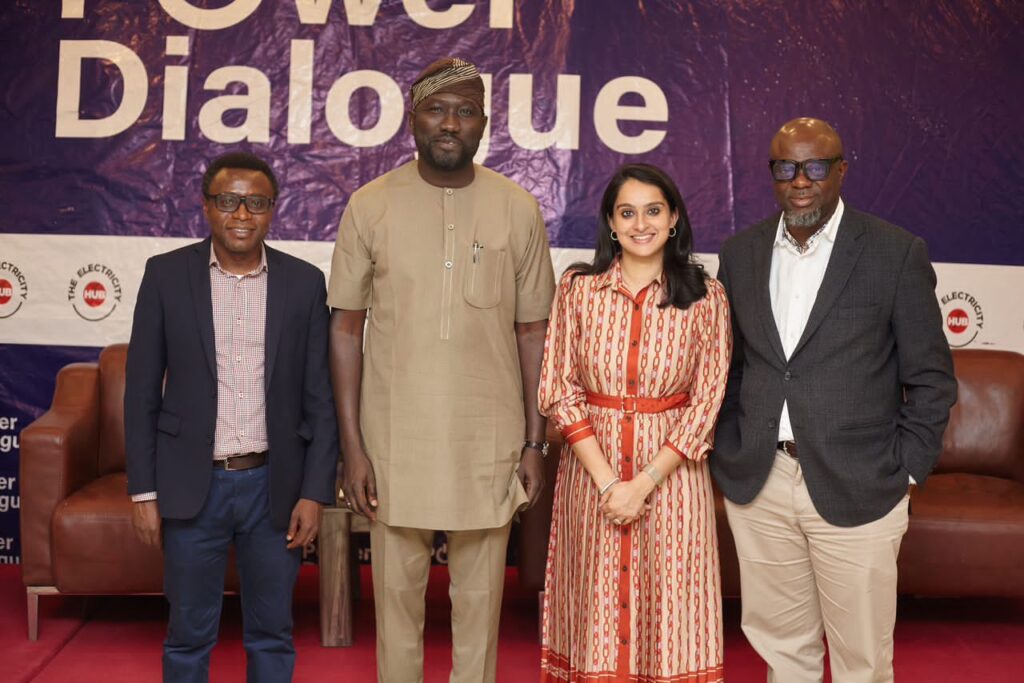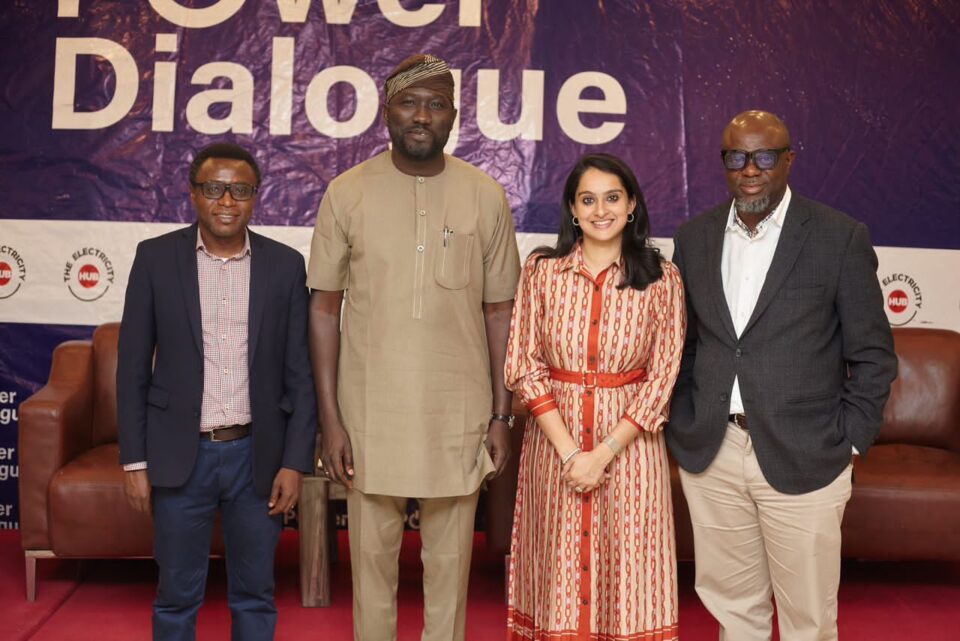By Chesa Chesa
With energy transition plans on the front burner worldwide, The Electricity Hub (TEH) convened a session of energy experts in Abuja where they, among other recommendations, suggested that stakeholders invest in human resources and sensitisation to ensure everyone is carried along in the energy transition goal.
At its 87th Power Dialogue titled ‘Tackling Nigeria’s Energy Transition Vulnerabilities’_ the experts discussed ways to manage possible challenges in energy transition in respect to people and economic development.

The panel consisted of key industry experts: Ruchi Soni, the Program Manager African Carbon Initiatives, SEforAll; Andrew Echono, the Country Director USADF; Engr. Barka Sajou, the Executive Director, Technical Services Rural Electrification Agency; while Dr. Ndubuisi Nwokolo, the Partner at Security, Peace and Development of the Nextier Group, moderated the session.
The conversation analyzed the adoption of renewable energy in Nigeria, following which the panelists agreed that the acceptance of renewable energy is getting widespread.
They also noted that the dwindling cost of fossil fuel has contributed immensely to the adoption of renewable energy option in Nigeria.
“To ensure progress, it is essential to utilize this great opportunity that the natural resources and energy deficit present”, the discussants stressed.
Engr. Sajou assured that the REA remained committed to ensuring 80 million persons are electrified totally, and that the Agency has made tremendous progress towards that.
In her contribution, Soni emphasized that energy transitioning is critical even as the knowledge of rural electrification is getting across Nigeria, although there is need for intense work to ensure the 40% of Nigerians still in darkness are electrified.
Echono explained that dealing with the transition vulnerabilities is crucial because the investment are not sufficient to cater to the challenges.
“It is very important for development agencies to support energy transition projects to scale up profit and sustainability”, he posited.
Discussing the challenges of renewable in respect to displacement, unemployment and other socioeconomic development, Sajou stated that issues of unemployment will not be challenged but it will give an opportunity for job redefinition.
He noted that in 11 years, five million jobs have been created from renewable energy; and to sustain this, there is a need to align the Nigerian education sector to develop capacity in the repurposing of these jobs.
He further asserted that there might be numerous vulnerabilities on the socioeconomic side due to saturation in the on-grid market that limits the ability for renewables to thrive.
On the flipside there are opportunities to examine the non-traditional funding systems to tackle this like the voluntary carbon market, he pointed out.
Soni stated that the lack of regulatory frameworks to handle these challenges needs to be solved to create a stable energy transition environment.
She went on to state that Data and Project Monitoring is key, because these are the things that will motivate development organization to invest more and dissolve these challenges.
To mitigate energy transition vulnerabilities, the panelists stated that in developing an integrated resource plan, skills set developing is core and shouldn’t be about gatherings but implementing project.
The session underscored the point that that standardization is necessary to mitigate the vulnerabilities while local manufacturing is also core to manage the vulnerabilities.
The panelists concluded that “the role of stakeholders is very critical. This cuts across funding to project development and monitoring the project post completion.
“There is a need for government officials to be more strategic in the planning of renewable projects and for funders to understand the long-term sustainability of before investing.
“Stakeholders need to invest in human resources and sensitisation to ensure no one is left behind in the energy transition goal.”



